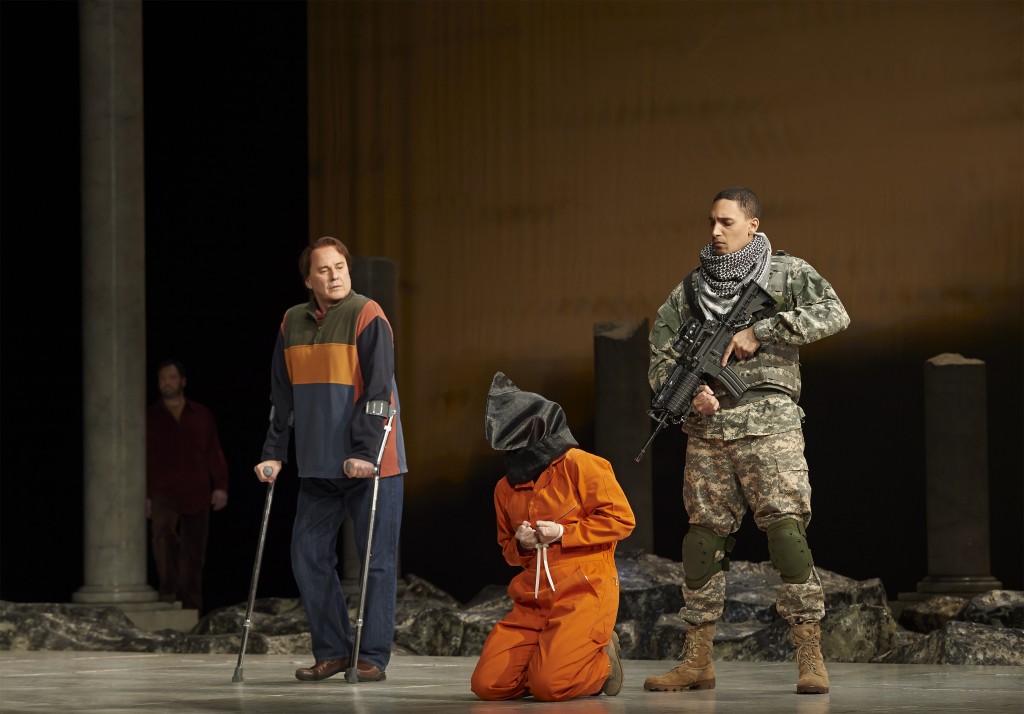
People arrived to find the Four Seasons Theatre almost candle lit. Fixed on stage were broken marble-like columns that surrounded a central pit of rocky debris.
Then at one fell swoop, the baton plunged and the stately overture began to swell towards the audience who sat agaze, looking about for the principals waiting in the wings. This was the moment Toronto’s opera fans had waited for all season, and the Canadian Opera Company, along with their star director, Peter Sellars, was ready to deliver a finely taut production of Handel’s 1744 musical drama, Hercules.
Over the past five years or so, audiences have had a vast appetite for early works, and Handel’s Hercules is an obvious choice for opera companies looking to satiate this enthusiasm. And who better to deliver than Peter Sellars, who is perhaps the go-to director for adapting works for the contemporary classical, opera, and theatre mind-set.
Sellers’ approach was to dress Handel’s drama in contemporary post-Iraq war America. Hercules, played by bass-baritone Eric Owens, is a U.S. army general, who after a tour of duty in Iraq, returns with an orange clad female prisoner, played by British soprano Lucy Crowe. Knowing only combat and suffering from PTSD, Hercules is reunited with his wife Dejanira, (played by mezzo-soprano Alice Coote) who has endured years of lonely doubt, but becomes jealous of the beautiful prisoner, Iole. Dejanira tries to rekindle the waning love of Hercules by sending him a jacket tainted with the blood of a centaur, that she believes is a magic potion capable of reviving “the expiring flame of love.” She gives the deadly coat to Lichas, played by countertenor David Daniels, who brings it to Hercules. After putting it on Hercules screams in agony in a scene reminiscent of Superman’s reaction to kryptonite. Zap! Pow! Crack! – “The world’s avenger is no more.” Horrified, Dejanira breaks under the strain of guilt and seeks suicide. Iole and Hercules’ son, Hyllus, played by tenor Richard Croft, intervene and unite with Dejanira with the resolve to remember all those who had sacrificed their lives to liberty.
One of the things one must contend with in early opera, are the obsessively repeated da capo arias. The early aria formula was based on the musical recitation of prologues in various types of text and it provides a chance to for the composer to highlight the musical aspects of the text by repeating it. To contemporary ears it can seem redundant, but for the period this was a widely expected feature that provided a pause to the narrative, and also allowed the singers to better demonstrate their talents.
Of course, it’s not for everybody, but if you are willing to overlook it, there was much to admire here.
In particular, Lucy Crowe is an absolute gem, and it fails to make any sense why she is not a household name. Her technical delivery of Handel’s avian-like melodies was flawless, and despite her entrance under an Abu Ghraib black hood, (first impressions count!), she completely enraptured the entire audience.
In many ways, this Handel opera should have been called Dejanira, and Alice Coote certainly lived up to the challenges of the complex role with a spellbinding performance. It is not enough to just tell it, a singer must also show it and Coote treaded the line between presenting a literal depiction of human confliction, and merely evoking the idea of it with poise.
As with any Sellers production, staging becomes a major player, and this production was definitely pointed. It was contemporary, but still included touches of the late-baroque. An example was the Greek-styled chorus, who were dressed in a mixture of U.S. issue battle fatigues, farm maiden outfits and 80’s roller derby style pastel coloured slacks and print shirts that looked like they had come right from Sellars’ own closet.
The chorus sections were a nice shift in musical texture, and even included moments of cheered beer drinking on stage, as well as choreographed hand gestures that looked a bit like a country line dance.
On the whole the staging worked brilliantly, but there were a few things that should have been rethought. The crutches worn by Hyllus, Hercules’s son, were redundantly awkward, and watching Croft maneuvering about and struggling to place his arms into the cuffs was distracting and completely unnecessary to the character.
Also, a few times during the show, a few rogue lights in the lighting design pointed directly at the audience and were blinding. I wasn’t sure if this was a malfunction or not, but on the whole it is a small point to make in an otherwise very effective mise-en-scène.
Notably, Sellers cut a number of scenes from Handel’s original score, which included a marriage scene between Hyllus and Iole at the end of the opera. I wondered why at first, but think it probably would have distracted from the final scene, which instead focused on a somewhat pro-USA jubilee of sorts.
One would be remiss not to mention the COC orchestra, who were rock-solid under the baton of conductor Harry Bicket. They were even-handed and well-intoned towards the stage craft unfolding before them.
The score is demanding and requires a nuance that is solidly controlled, and is psychologically underpinned by the characters on stage. There is a clear distinction between soloist and accompaniment, and the orchestra allowed the emphasis to be on the song-like melodies, with the use of short, periodic phrases, and simple harmonic vocabulary. Bicket’s tempo was just right for the amount of musical and narrative information Handel delves out over the three-hour gallant music spectacle.
By the end, what becomes clear is that the COC has hit the nail on the head with this production. It was not only impeccably performed but perfectly casted. Sellars’ vision came across clearly, and created its own ingenious interest that brings the opera to life once again.
Michael Vincent
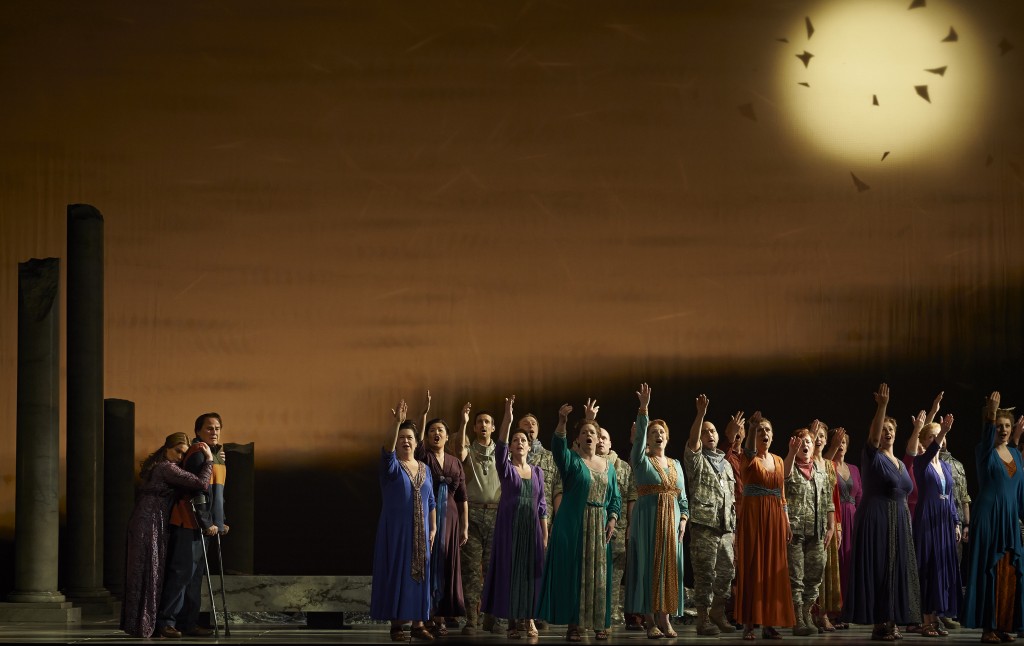
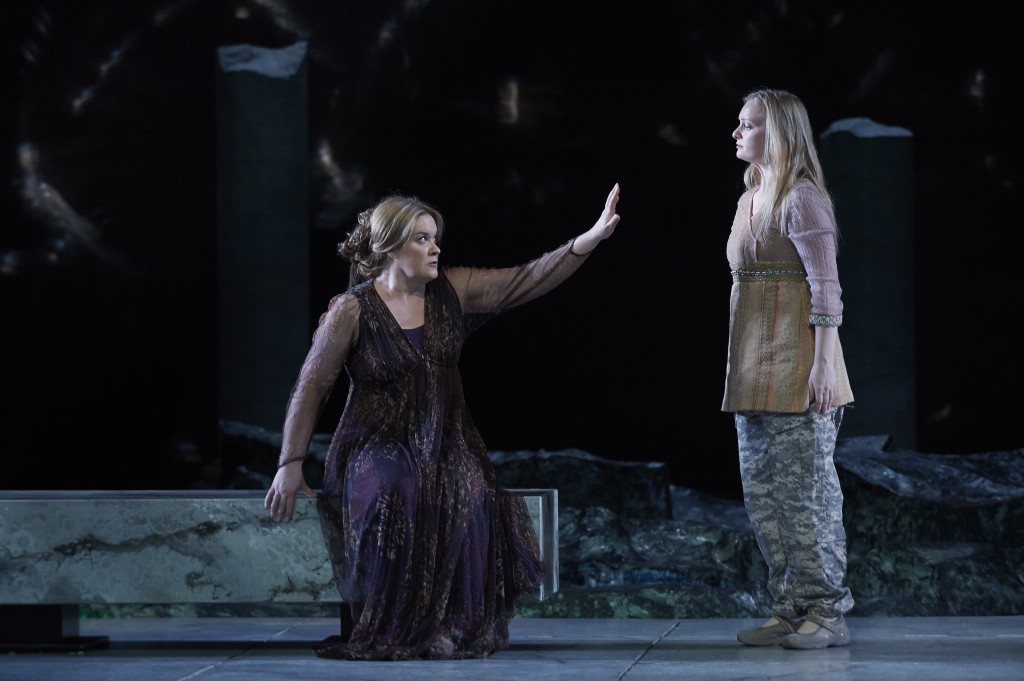
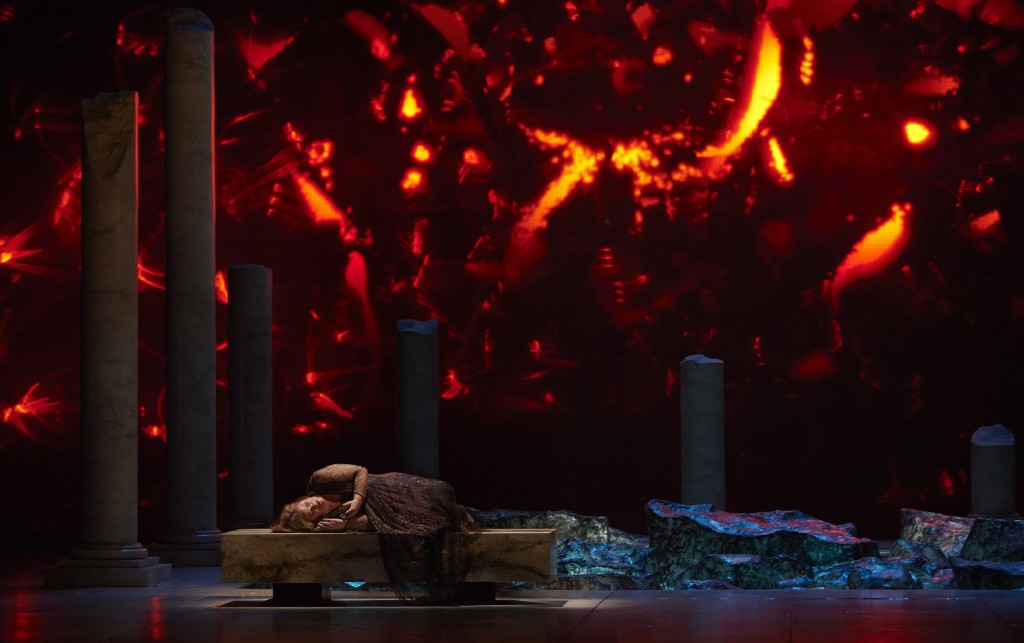
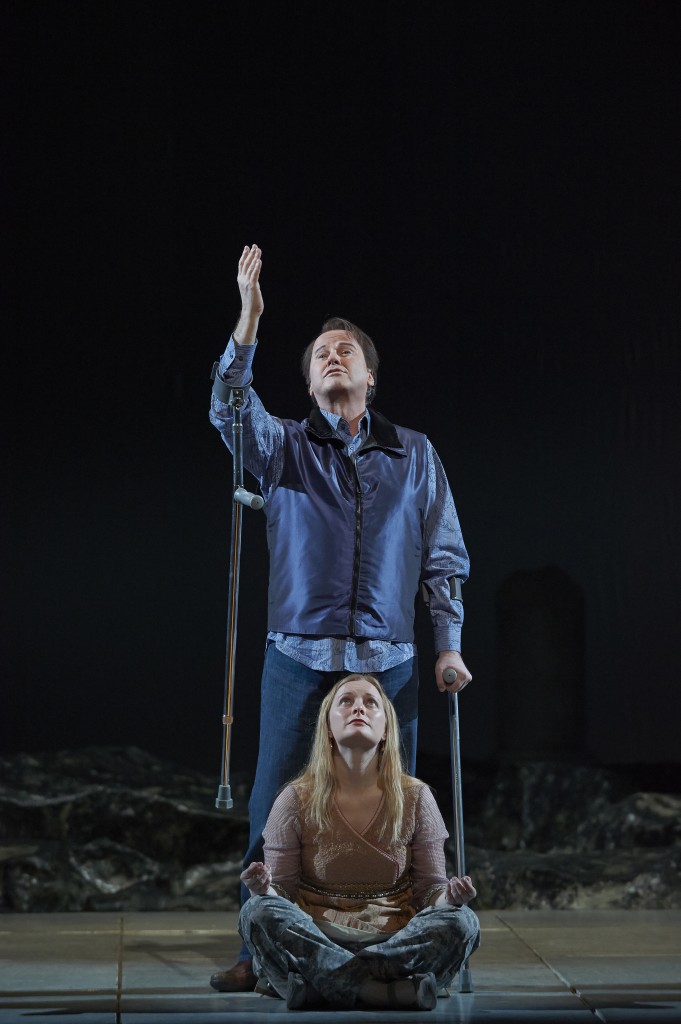
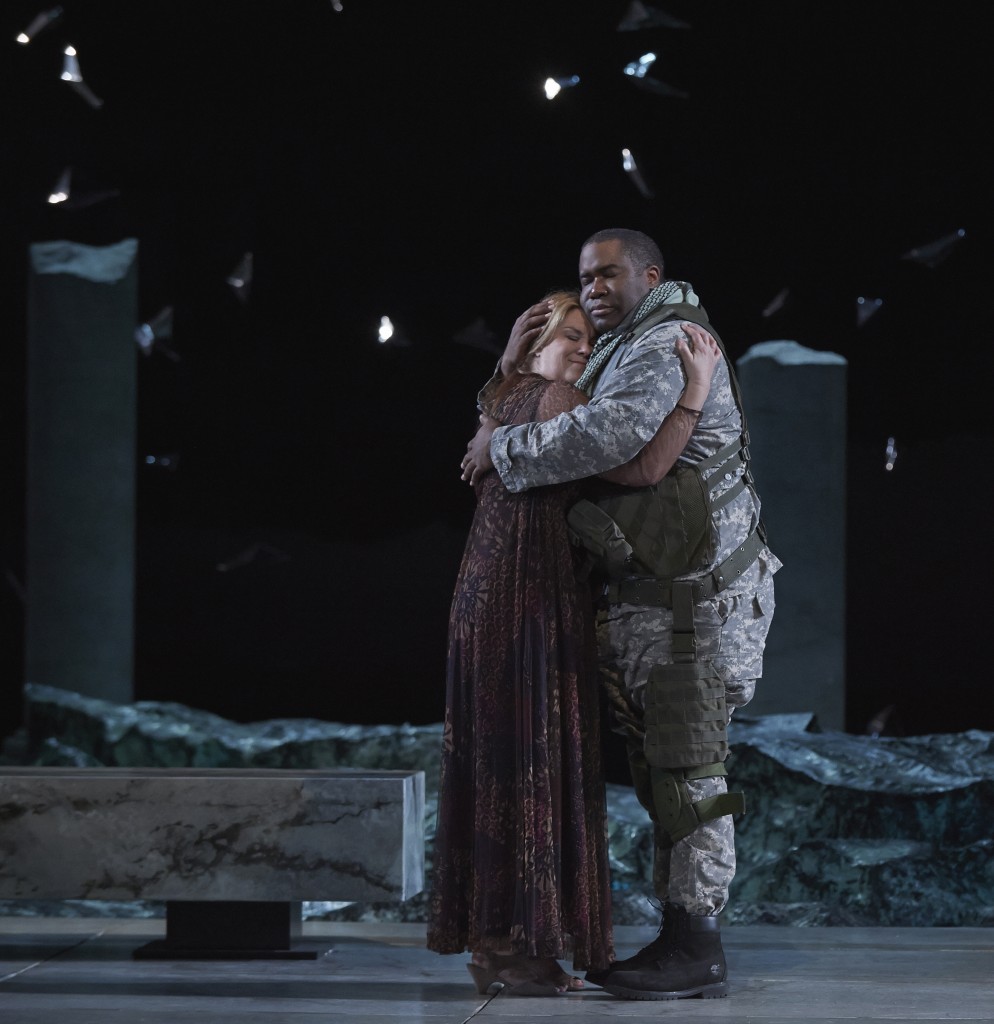
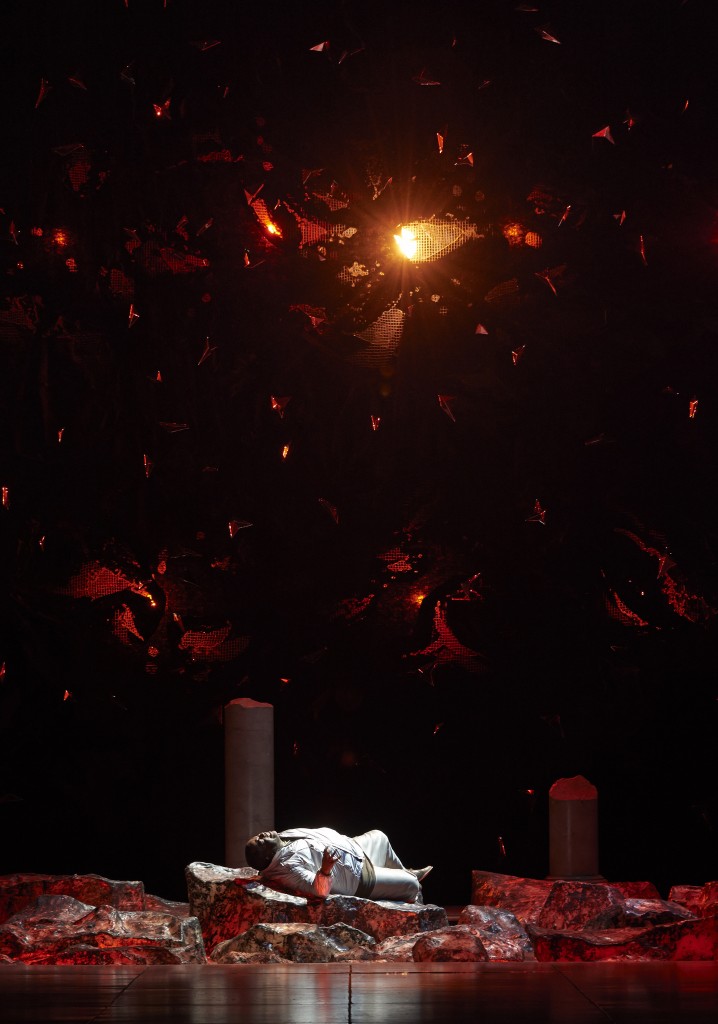
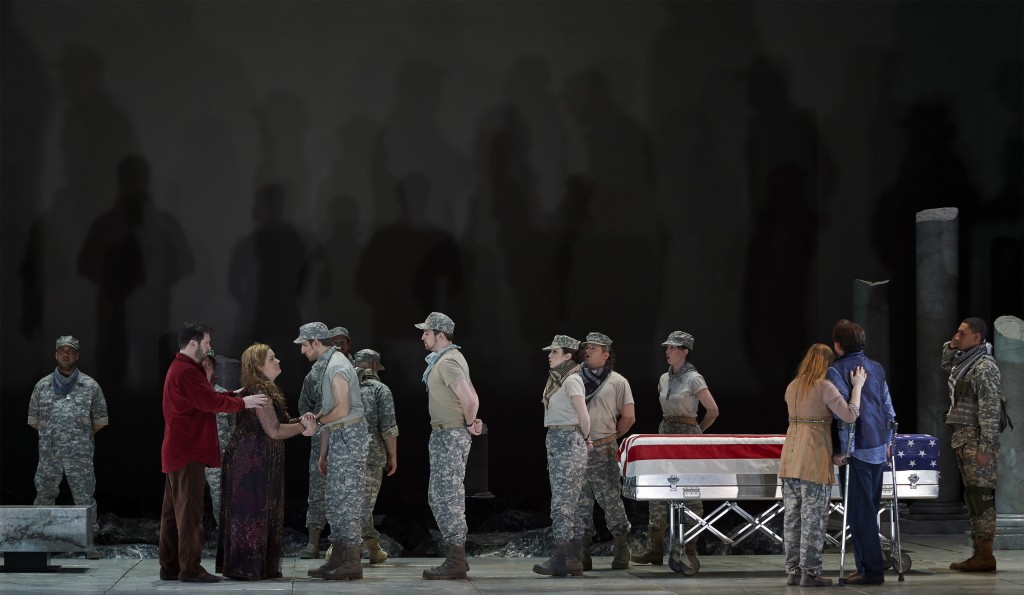
- THE SCOOP | Royal Conservatory’s Dr. Peter Simon Awarded The Order Of Ontario - January 2, 2024
- THE SCOOP | Order of Canada Appointees Announced, Including Big Names From The Arts - December 29, 2023
- Ludwig Van Is Being Acquired By ZoomerMedia - June 12, 2023



